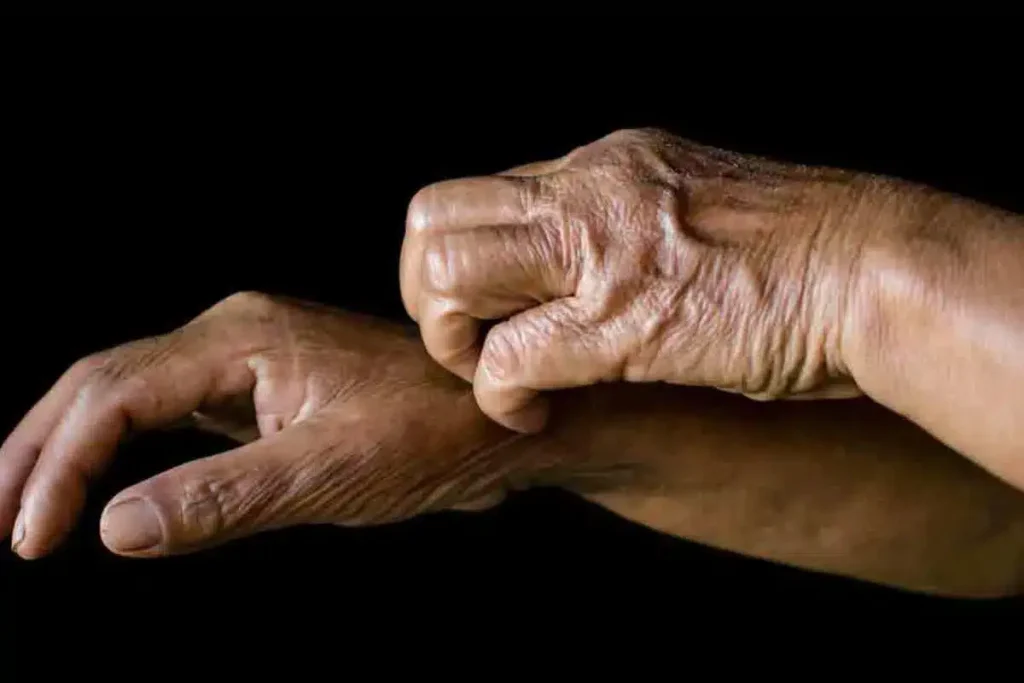
Hives or Itching of Body in Elderly: Treatment Considerations
The itching of the skin of the elderly and their body is due to the abnormal drying of the skin. The name comes from the Greek word xero, which means dry. Xerosis or dry skin in the elderly is very common. It is often a minor and temporary problem, but it can be uncomfortable. Your skin needs moisture to stay soft. As you age, it becomes harder for your skin to retain moisture. Your skin can become dry and rough as it loses water and oil. Dry skin is more common during the cold winter months.
Itching of body in elderly can be very annoying and debilitating. It is more common skin diseases in the elderly because as we age, our skin becomes drier and therefore itchier. However, it can be treated by identifying the causes and implementing some treatments. In this article from the Human Health Mag website, we will explore what you need to know about itchy skin in the elderly. We will also provide comprehensive and useful information about the causes, symptoms, diagnosis methods, treatment methods, and prevention strategies for hives or itching of body in the elderly.
What is Hives?
Hives or urticaria is a type of allergic skin reaction that appears as red, itchy bumps on the skin. These lesions may appear as swollen red or pale pink bumps and usually appear suddenly. Hives are different from other skin rashes, including the appearance of the lesions, their duration, and the causes of their occurrence.
These rashes and skin lesions may also make it difficult for seniors to perform daily activities such as dressing, bathing, and even moving. Body itching can sometimes cause anxiety, stress, and depression in seniors, especially if it occurs frequently and is difficult to treat.
Body itching in seniors can be caused by a variety of reasons, including allergies to certain foods, medications, insect bites, or physical factors such as cold and heat. This skin condition can have significant negative effects on the lives of people, especially the elderly. For example, hives cause severe itching and discomfort that can disrupt the elderly’s sleep and rest.
In old age, the skin of the body may experience itching due to various reasons, one of the most common of which is hives. Note: Hives are not necessarily accompanied by itching in the skin, and it is possible for the skin to have hives but not itch, and this happens in rare cases.
Causes of Hives or Itching of Body in Elderly
As we said, dry skin is one of the most common skin problems in the elderly, which is directly related to the reduction of skin surface fats. This dryness is usually exacerbated by environmental factors. Activities or conditions such as:
- Excessive cleaning and washing of the skin
- Frequent bathing or showering with very hot water
- Living in areas with cold and dry winters
- Using heating devices at home or at work
- Dehydration, or not drinking enough water
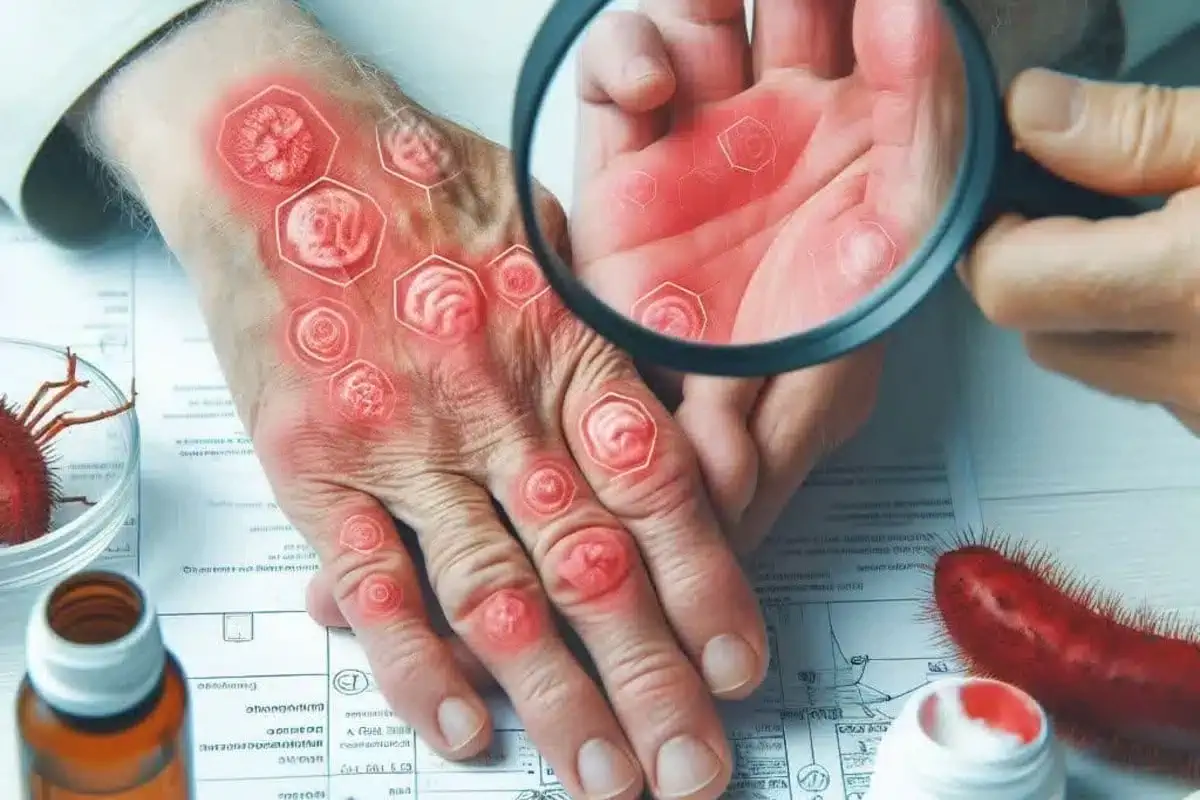
May lead to dry skin. Hives can also occur for various reasons, some of the important causes of which are:
- Dry skin due to reduced production of natural skin fat, use of strong soaps and environmental factors
- Allergies and reactions to allergens such as certain foods (such as eggs, milk, nuts and fish), insect bites and detergents
- Underlying diseases and infections such as diabetes, kidney disease, autoimmune diseases and some viral, bacterial or fungal infections
- Taking certain medications such as antibiotics (especially penicillin), painkillers and blood pressure medications
- Some diseases such as leukemia, lymphoma and thyroid disorders
- Thyroid disorders, especially hyperthyroidism
When Are Hives or Itching of Body in Elderly Dangerous?
Itchy skin in the elderly, which has become one of the challenges of seniors, is manageable and treatable, but if your symptoms last more than two weeks, distract you from daily activities, or are accompanied by other symptoms (such as weight loss, fever, or night sweats), talk to your doctor or dermatologist. Knowing the symptoms of chronic itching in older adults can be helpful, but what causes so much itching? In the next section, we will look at the causes of itchy skin in the elderly.
Symptoms of Hives or Itchy Skin in the Elderly
If the elderly person does not have a skin abscess, the symptoms of itching in the elderly include the following:
- Dry, itchy, and scaly skin, especially on the arms and legs
- A feeling of tightness in the skin, especially after bathing
- White and scaly skin
- Red or pink irritated skin
- Fine skin cracks
Physical stimuli such as cold, heat, pressure, or friction can also cause itching of body in elderly. Also, excessive exposure to sunlight is also effective in contracting this disease. Environmental factors such as contact with pollen, dust and animal hair also play a role in itching of the body.
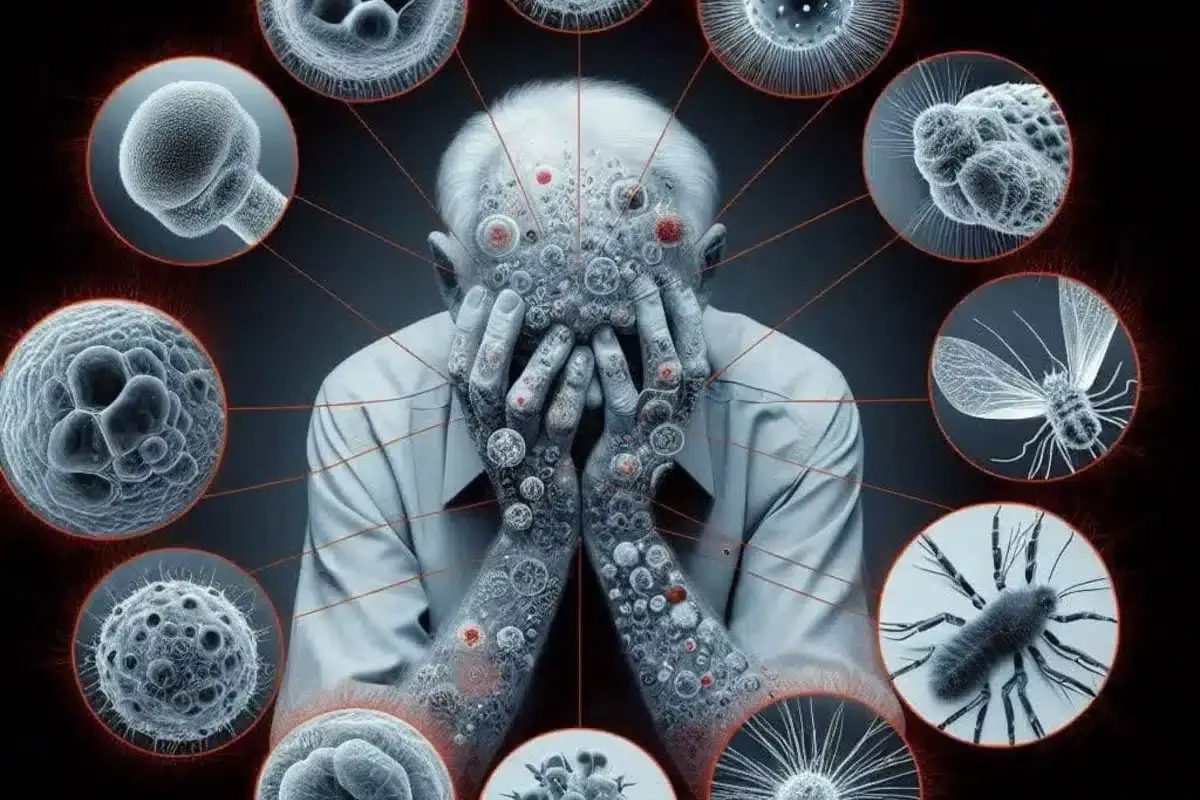
Hives have main signs and symptoms that can vary from person to person. Some of symptoms of hives, especially in the elderly include:
- Severe itching of the skin, which can be very bothersome
- Skin lesions appear as red or pink bumps of varying sizes
- Parts of the skin may swell, usually due to fluid accumulation under the skin
- Redness of the skin
- Burning
- Pain in the affected areas
- Fever, in rare cases, or even headache
- Persistent fatigue in some cases
How is Hives Different from Other Skin Conditions?
Hives are different from other skin conditions in some ways. They appear as red or pink bumps with a well-defined edge and sometimes a white center. These lesions usually disappear quickly and may reappear in other parts of the body. In contrast, other skin conditions, such as eczema or psoriasis, usually have more scaly and thickened lesions that change over time.
Hives usually stay in one spot for less than 24 hours and then disappear, while the lesions of other skin conditions may last longer and change gradually. Hives are caused by an allergic reaction to certain substances, such as foods, medications, or insect bites. However, skin conditions such as eczema may be caused by genetic, environmental, or immune system factors. The itching in hives is usually severe and sudden, while in conditions such as eczema, the itching may be chronic and ongoing.
How to Diagnose Itchy Skin (Pruritus) or Urticaria in Older Adults
The diagnosis of urticaria in elderly is usually based on a physical examination and the patient’s medical history. A doctor may use the following methods to diagnose hives:
- Physical examination
The doctor will examine the areas affected by hives and ask questions about symptoms, how long they have been present, and possible triggers, such as foods, medications, and exposure to chemicals. The doctor may also review the patient’s medical history to identify possible triggers, such as chronic illnesses or taking certain medications.
- Diagnostic tests
In some cases, blood tests are done to check for allergic or inflammatory factors. Other skin tests, such as a skin biopsy or a scratch test, may also be helpful to identify the allergen and diagnose the condition.
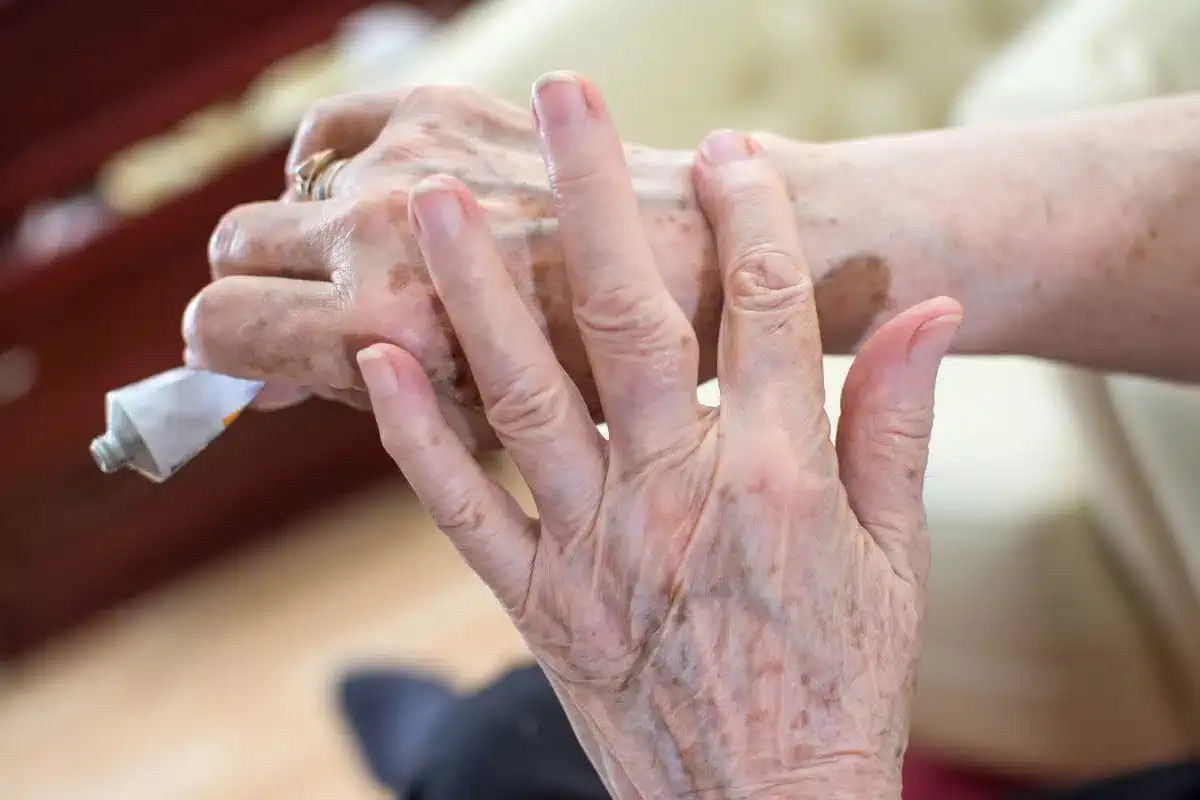
Treating Itchy Skin in Seniors
Itch in the elderly can be quite debilitating and keep they from enjoying their daily activities. Fortunately, there are many ways you can manage body itching in elderly. The goal of treatment is to relieve your symptoms. Treating itching of body in elderly at home includes using moisturizers regularly. Oil-based creams are usually more effective than water-based creams for moisturizing.
Look for creams that contain lactic acid, urea, or both. If your skin of body is itchy, you can try a topical steroid, such as 1% hydrocortisone cream. Ask a pharmacist what moisturizer or product they recommend that works for you. Be aware that products labeled as lotions instead of creams are less oily. Water-based lotions, instead of improving the skin or relieving the symptoms, may cause more irritation in the aging itch. Other treatments of itching of body in the elderly include:
- Avoiding extreme heat
- Taking lukewarm baths or showers
- Drinking plenty of water
Natural remedies such as essential oils and aloe vera are popular for treating xerosis, but their effectiveness remains unproven. One reliable source suggests avoiding aloe vera when treating xerosis, as it may make the skin more sensitive. Soothing agents like coconut oil can help keep the skin moisturized and relieve itching.
How to Prevent Hives or Itching of Body in Seniors
Dry skin and itching, especially as they age, cannot be avoided. However, by modifying your daily routine, you can easily avoid or reduce the symptoms of itchy skin.
Things to Do for Management of Itch in the Elderly
- Avoid bathing or showering with very hot water. Choose lukewarm water
- Take short, cool showers with soap-free alternatives
- Do not spend too much time in a hot tub or pool
- Use mild cleansers that are free of dyes, perfumes, or alcohol
- Instead of rubbing your body with a towel to dry after a bath, gently pat your skin dry
- Stay hydrated by drinking plenty of water
- Reduce the use of soap on dry areas of your skin and use mild soaps that contain oils
- Avoid scratching the affected area
- Use oil-based moisturizers regularly, especially in the winter and directly after bathing
- Eat healthy foods and avoid allergenic foods
- Use sunscreen when you go outside
- Do facial exercises for skin rejuvenation
- Practice relaxation and stress management exercises such as yoga and meditation.
- Use humidifiers to increase indoor humidity in dry, cold weather
- Use creams and ointments, such as corticosteroid creams
- Take medications as prescribed by your doctor
- Participate in light therapy (Phototherapy)
- Wear loose, cotton clothing, as these can help reduce skin irritation
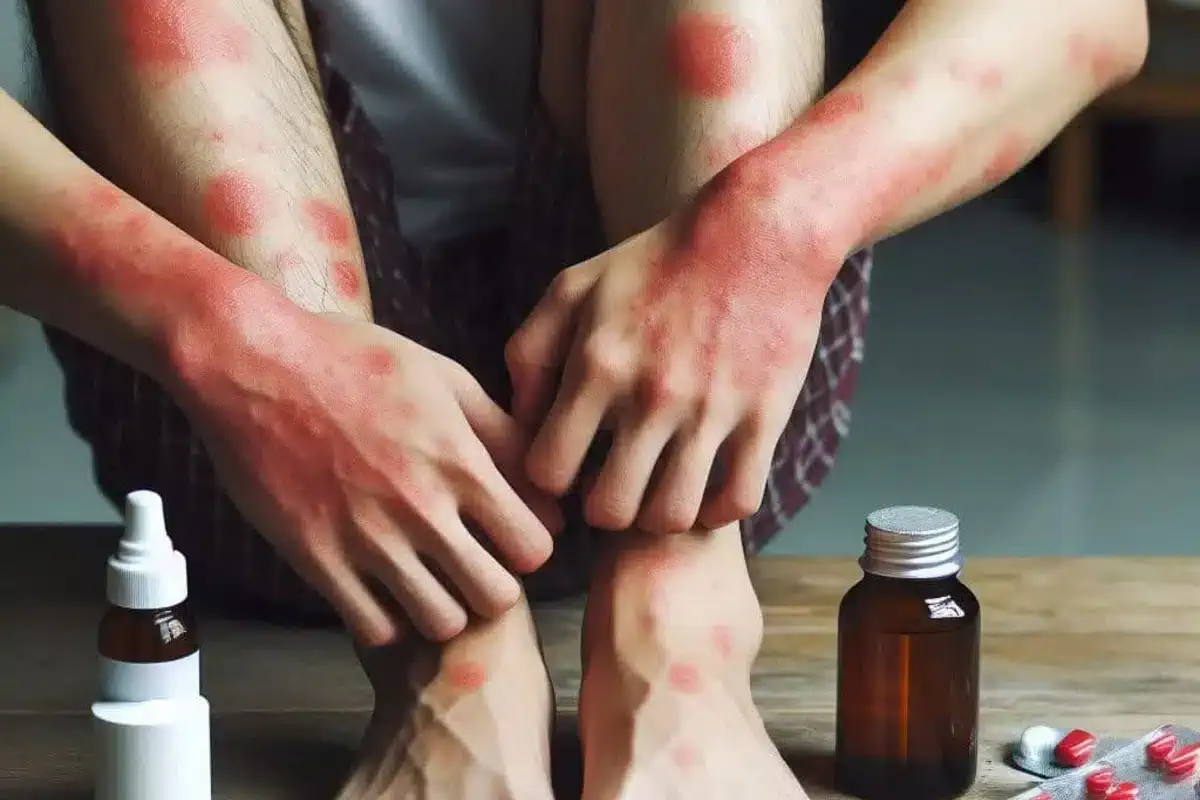
Things You Shouldn’t Do for Relief from Senile Pruritus
- Excessive use of heaters and electric blankets in cold weather
- Direct contact with wool or synthetic clothing
- Keep your nails long
When Should You See a Doctor for Hives or Itching of Body in an Elderly Person?
You should see a dermatologist if:
- Your skin is oozing fluid
- A large area of your skin is peeling
- You have ring-shaped skin irritations
- Your skin doesn’t improve within a few weeks
- Your skin gets much worse despite treatment
- You may have a fungal or bacterial infection, allergies, or other skin problem. Excessive scratching of dry skin can lead to infection
If left untreated, dry and itchy skin in the body and skin of the elderly can lead to complications. For example, if dry skin causes itching, it may cause inflammation and cracking of the skin, which can lead to secondary bacterial infection.
Concluding Remarks
In this article, we have made some points about hives or itching of body in elderly, its causes and symptoms. We also provided you with explanations about the methods of diagnosis, treatment and prevention of this disease. Early diagnosis and appropriate treatment of pruritus in the elderly is very important to prevent its progression and subsequent complications. Also, following the recommendations of doctors and caregivers is sometimes important and effective in preventing this disease.
Increasing public awareness about itching in the elderly and its treatment is of great importance. This awareness can help improve the quality of life of affected people and reduce the prevalence of this disease. With increased awareness, people can recognize the symptoms of itching of body in elderly earlier and see a doctor in a timely manner, which can help with faster and more effective treatment. Knowing that this disease is a treatable disease and knowing the methods of managing it can help reduce the stress and anxiety of affected people.
Don’t just read; also engage and inspire! What did this post teach you, and how will you apply it? Please leave your thoughts in the comments, and let’s learn from each other!

Frequently Asked Questions
What causes body itching in elderly at night?
Itching of body in elderly at night may be due to temperature changes, dry skin, stress, or skin and internal diseases.
What is the best way to treat itching of body in elderly at home?
To reduce body itching at home, use moisturizers, cold compresses, baths with baking soda, soft clothes, and if necessary, anti-itch medications after consulting a doctor.
What are the symptoms of body itching in the elderly?
Skin itching can indicate dry skin, allergies, stress, skin diseases such as eczema and psoriasis, or liver and kidney problems.
